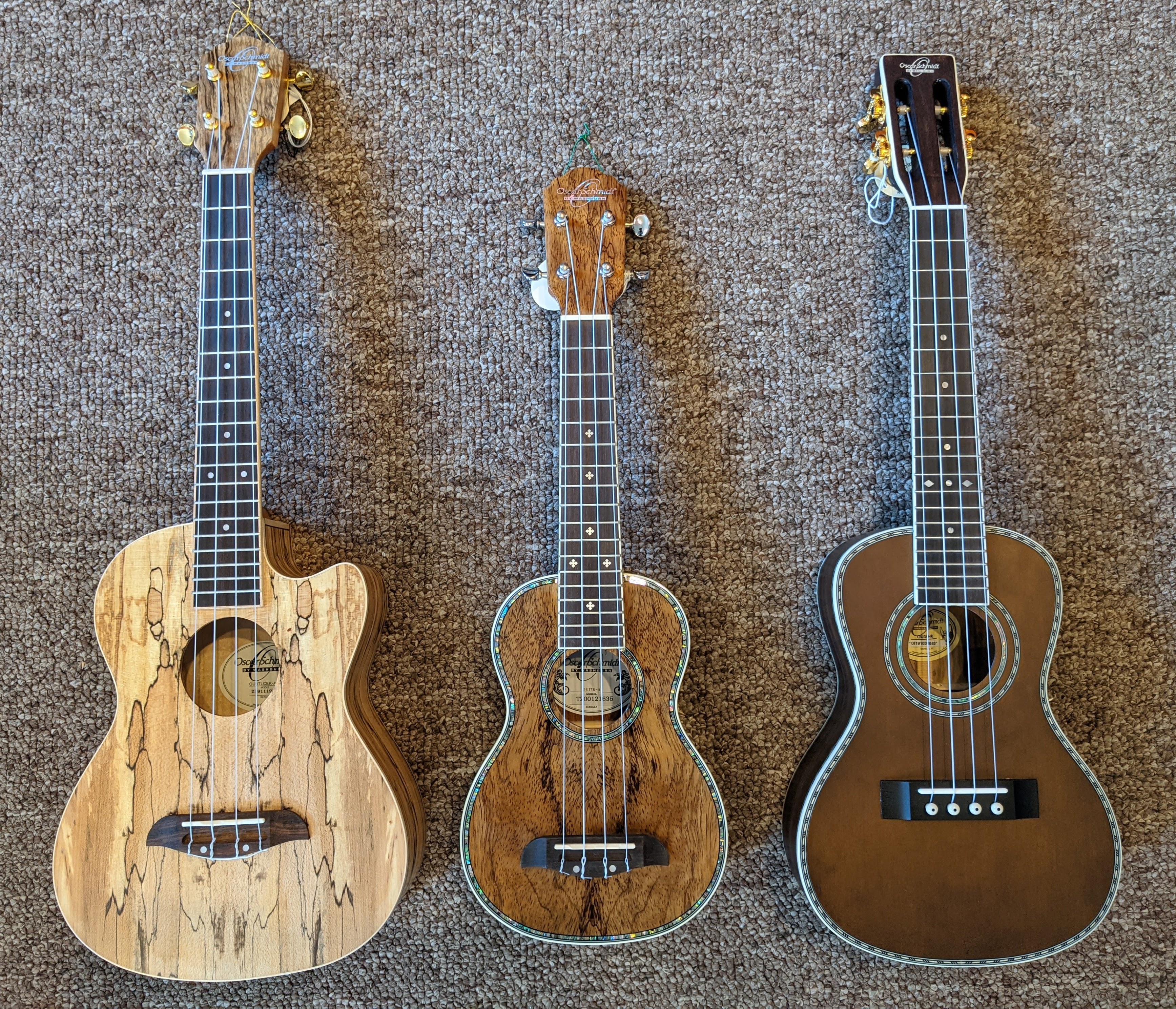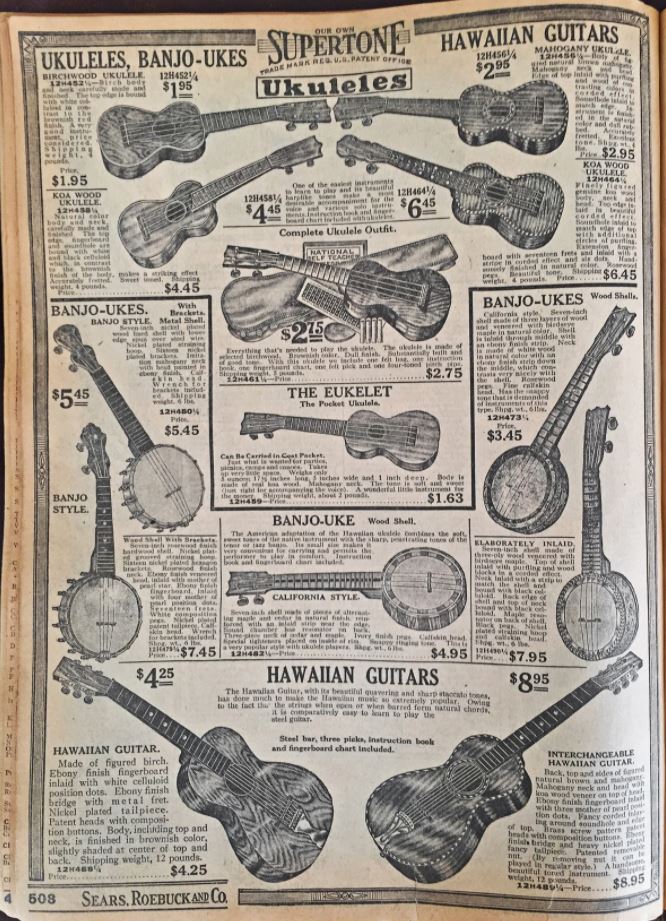
Ukuleles at Vintage Music
Ukulele is perhaps the most recent instrument to become part of Appalachian music. Tuned in G-C-E-A, the ukulele’s roots are in the Portuguese braguinha (also known as the machete de braga), which was first brought by Portuguese immigrants who came to work on sugar plantations in Hawaii in the mid-nineteenth century. It became popular with the royal family at the time, who encouraged its incorporation into traditional Hawaiian dances and music. With the advent of the recording industry, music from Hawaii featuring ukulele became popular with listeners from the mainland, especially those who associated its sound with the appealing tropical paradise that Hawaii was widely advertised to be in movies and music.
Portuguese braguinha playing demonstration
Alongside guitars, banjos, and other string instruments, ukuleles were commonly sold by Sears Roebuck and other department store catalogs, which made them easy to buy, even during the Great Depression. The popularity of ukulele in mainstream music during the 1920s, when it was favored by performers such as Ukulele Ike and George Formby, contributed to the inclusion of ukulele chords on sheet music and instruction booklets, increasing the influence of the instrument throughout many other genres of music, including stringband, blues, and jug band music. Ukuleles typically provide rhythmic, percussive accompaniment in stringband settings, but other techniques of playing include finger-picking, tremolo and single-string lead-playing. These techniques are common in ragtime, blues, and the jug band repertoire, all of which drew from Hawaiian-inspired mainstream music. Banjo ukuleles in particular were popular in early string bands because their volume could carry over the sounds of fiddle, banjo, and guitar playing. In more recent decades, ukulele has become popular in old-time music again and its rock-solid, driving rhythm can be heard in jams at festivals and in modern string bands.

Advertisement for Supertone ukuleles in a 1922 Sears-Roebuck catalog
The string band Al Hopkins and His Hillbillies included a banjo ukulele player (name unknown, 1926/27)
Brad Leftwich and the Humdingers ft. Linda Higginbotham on banjo ukulele (1991)
JOKE
Q: Why do people tremble with fear when someone comes into a bank carrying a ukulele case?
.
.
.
.
.
.
.
.
.
.
.
.
A: They think he’s carrying a ukulele and might be about to use it.
Listening
REFERENCES
“History of the Ukulele”. Athens-Clarke County Regional Library System. Accessed March 8, 2021. http://www.athenslibrary.org/athens/services/make-music-at-your-library/history-of-the-ukulele.
Jacobson, Marion. “The Rise and Fall (and Rise) of the Ukulele.” The Atlantic. Atlantic Media Company, January 25, 2015. https://www.theatlantic.com/entertainment/archive/2015/01/though-it-be-little-the-rise-of-the-ukulele/384453/.
Rev, Lil, and Deb Porter. “‘Just a Few Penny Dreadfuls’: The Ukulele and Old-Time Country Music.” The Old-Time Herald, Volume 9, Issue 5, 2004.
